What is a depleted uranium weapon?
Depleted uranium (DU) is a dense byproduct left over when uranium is enriched for use in nuclear reactors or nuclear weapons. Depleted uranium is still radioactive, but has much lower levels of the U-235 and U-234 isotopes than those found in natural uranium ore, reducing its radioactivity.

Some bullets contain depleted uranium. Photo: CBC
It is used in weapons because it is so dense that it spontaneously combusts at high temperatures and pressures, making bullets sharper when penetrating armor plating, according to the International Atomic Energy Agency (IAEA). "When a DU penetrator strikes a target, its surface temperature increases dramatically," according to the Radiation and Radioactivity Museum at Oak Ridge Associated University (ORAU) in Tennessee, USA.
"This causes local softening in the 'adiabatic shear band' and flaking off parts of the bullet's surface. This keeps the bullet pointed and prevents a mushroom effect. As DU penetrates the target vehicle, the auto-ignition properties of the uranium increase the likelihood that the vehicle's fuel and/or ammunition will explode."
This means that when the DU weapon hits the tank's armor, it will cut through it in an instant before exploding. The increased temperature will detonate the tank's fuel and ammunition.
Which countries have DU and what are the risks?
The United States, Britain, Russia, China, France and Pakistan have produced depleted uranium weapons, which are not considered nuclear weapons, according to the International Coalition to Prohibit Uranium Weapons. Fourteen other countries are believed to have them in stockpiles.
There have been many studies on the effects of exposure to depleted uranium weapons, particularly in battlefields where these weapons were used in the 1990–1991 Gulf War and in the 1999 NATO bombing of Yugoslavia.
About 340 tons of depleted uranium were used as munitions in the 1991 Gulf War and an estimated 11 tons were used in the Balkans in the late 1990s, according to the Royal Society, a London-based association of scientists .
According to some experts, eating or inhaling uranium, even depleted uranium, is dangerous: it impairs kidney function and increases the risk of developing a range of cancers. The International Coalition to Ban Uranium Weapons says that dust created by such weapons can poison groundwater and soil.
However, the Royal Society said in a 2002 report that the risks to the kidneys and other organs from using depleted uranium munitions were very low for most soldiers in the field and for people living in conflict zones.
“Under extreme conditions and in the worst case, soldiers exposed to large doses of DU may experience adverse effects on the kidneys and lungs,” the association said. “Environmental exposure will vary widely but in most cases the associated health risks from DU will be very low.”
A small number of Gulf War veterans had fragments of depleted uranium in their bodies, leading to elevated levels of DU excretion in urine, but no health effects, the IAEA said.
The IAEA said studies of soldiers had shown that there was a small increase in veterans' mortality, but this excess increase was due to accidents rather than diseases... This could not be linked to any exposure to DU.
A United Nations Environment Programme report on the impact of depleted uranium on Serbia and Montenegro found "no widespread, significant contamination". Some Serbian politicians have disputed this and have reported an increase in the incidence of malignant diseases in Serbia and an increase in deaths from malignant tumors.
Reaction from Russia and the UK
Russian President Vladimir Putin said that if such munitions were supplied to Ukraine, Russia would have to respond accordingly, without giving details. He said the West was using weapons with a nuclear component.
Russian Foreign Ministry spokeswoman Maria Zakharova said depleted uranium munitions also caused “enormous damage” to both those who used the weapons and civilians living in the war zone. She said cancer cases in Yugoslavia had risen sharply after the NATO military alliance used the weapons in 1999.
British Foreign Secretary James Cleverly said there was no nuclear escalation from the move. “People need to understand that these are not nuclear munitions, they are completely conventional,” he said.
Meanwhile, a spokesman for the UK Ministry of Defence said that "the British military has used depleted uranium in armour-piercing ammunition for decades".
Quoc Thien (according to Reuters)
Source







![[Photo] Opening of the 14th Conference of the 13th Party Central Committee](https://vphoto.vietnam.vn/thumb/1200x675/vietnam/resource/IMAGE/2025/11/05/1762310995216_a5-bnd-5742-5255-jpg.webp)
















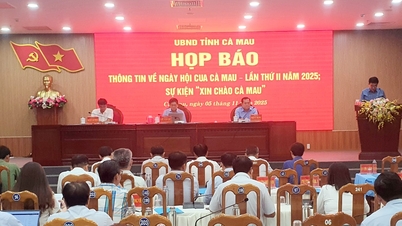



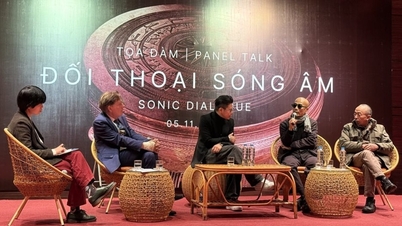
![[Photo] Panorama of the Patriotic Emulation Congress of Nhan Dan Newspaper for the period 2025-2030](https://vphoto.vietnam.vn/thumb/1200x675/vietnam/resource/IMAGE/2025/11/04/1762252775462_ndo_br_dhthiduayeuncbaond-6125-jpg.webp)


































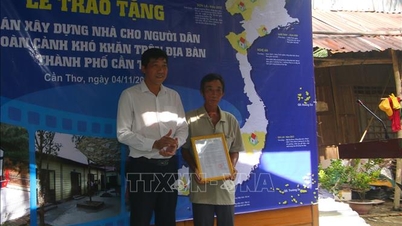

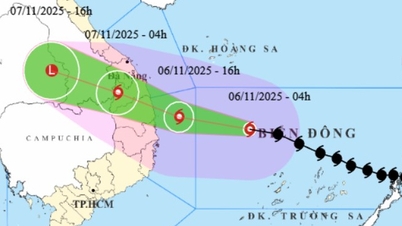












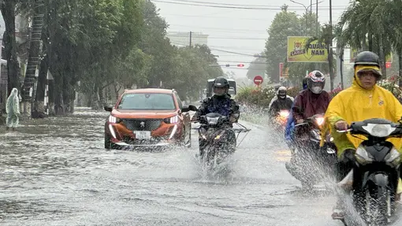

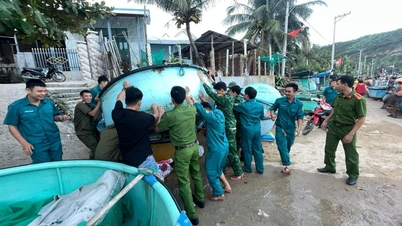



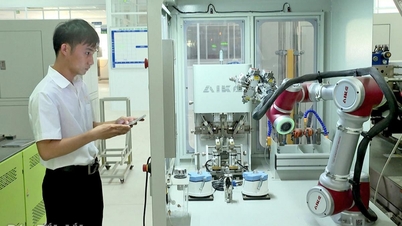















Comment (0)